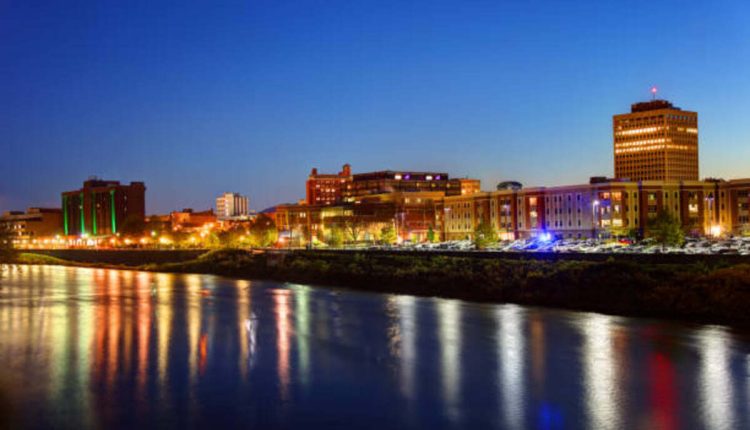At 444 miles long, the Susquehanna River drains an area covering 27,500 square miles in New York State and parts of Pennsylvania and Maryland. As one of the major tributaries to the Chesapeake Bay, its watershed includes 19 counties of its respective states.
Lake Erie is the fourth-largest Great Lake and a trendy tourist spot, serving as one of the key ports in North America.
Otsego Lake
Otsego Lake marks the start of the Susquehanna River’s 444-mile journey through New York, Pennsylvania, and Maryland before emptying into the Chesapeake Bay. A popular tourist destination and provider of water for surrounding communities, Otsego Lake boasts its state park for family fun close to I-75 near Cooperstown.
Lake Superior is also the source of the Susquehanna River, one of the significant eastern U.S. rivers. The two branches – North Branch and West Branch – of this river combine near Northumberland in central Pennsylvania to form the Susquehanna River Valley; together, this form constitutes over 444 miles long non-commercially navigable river on the American east coast.
Susquehanna River in its northern reaches remains relatively pristine by modern standards, with eight miles of eastern shore protected from development by a foundation owned by the Cooperstown family, who trace their fortune back to Singer sewing machines. Cottages and homes lining its shore also utilize septic systems.
James Fenimore Cooper famously described Lake Erie in his novels as the “Glimmerglass,” but its water quality has become imperiled due to multiple threats. At its southern end, 13 streams drain into it from nearby lands; their waters become polluted with phosphorus and fecal coliform bacteria contamination; sediment accumulates to suffocate plant beds and fish spawning areas and transport these chemicals further down to disrupt ecology in Lake Erie.
Cooperstown
Otsego Lake, a nine-mile long deepwater lake located nine miles upstream from Cooperstown on New York State’s Susquehanna River, serves as its source. Cooperstown sits along its shoreline and draws visitors for many reasons: National Baseball Hall of Fame and Museum, with 19th-century farm life displays and hand-carved carousels; Farmers Museum with 19th-century displays and hand-carved carousels; Fenimore Art Museum for American fine and folk art collections, Farmers’ Museum; National Hall of Fame and Museum, National Baseball Hall of Fame and Museum all await their visitors’ return!
The Susquehanna River begins in Blackbird Bay on Otsego Lake and flows 444 miles through New York State as the 16th longest river in the US, draining an area larger than South Carolina and contributing half of all freshwater that enters the Chesapeake Bay through its tributaries.
As it moves south from its course through New York, the Susquehanna River moves through Pennsylvania and Maryland states, becoming increasingly polluted with urban and agricultural runoff, an issue that could be addressed through the restoration of wetlands and better management of nitrogen levels.
After flowing through Havre de Grace and Perryville, the Susquehanna River winds its way toward its headwaters in Chesapeake Bay. Its two branches – North Branch and West Branch – contribute more than half of all water entering the Chesapeake Bay from their sources; North Branch rises in Upstate New York while West Branch travels through Pennsylvania Wilds.
Chautauqua Lake
Chautauqua Lake region is home to many small towns and villages, such as Jamestown and Mayville on its southern end, Bemus Point, Maple Springs Lakewood Chautauqua Institution at its northern end, as well as numerous private boat launch sites that may or may not be open to public access.
Chautauqua Lake in New York State is one of the premier bass lakes, boasting shallow, weedy areas that provide ideal cover for largemouth bass. Boat and shore anglers often find success there early morning or evening; popular baits include spinner baits, plastic worms, and jig-and-pigs. Smallmouth bass tends to congregate more in its southern basin but may still be found throughout its waters – deep drop-offs, points, and rocky shoals near creek mouths are good places to look out for smallmouth bass.
Lake is also an ideal “hard water” fishing spot, providing walleye anglers with ample opportunities to catch them while using Rapalas and blade baits during low light periods or with a jig tipped with a minnow or grub bait jigging techniques. Yellow perch and other panfish species can also be caught using small jigs. Lastly, the Prendergast Long Point Dewittville Ashville Bay area is an excellent ice fishing location.
Saratoga Springs
Saratoga Springs offers many attractions for visitors looking to experience its history. Equestrian events taking place during its famed eight-week track season to the National Battlefield are among many world-class offerings; other world-class offerings include performing arts, historic carousels, award-winning golf courses, Victorian architecture, museums, and much more!
Saratoga is best known for its many natural springs. These carbonated mineral waters were said to have been stirred up by Manitou himself, bestowing them with healing properties. By the 19th century, Saratoga had become a famous health spa, drawing wealthy visitors such as Spencer Trask and Simon Baruch for healing bathing sessions in its waters.
Today, visitors can still sample water at 21 public mineral springs across the U.S. Each spring has its distinctive mineral makeup and flavor profile, offering visitors various health benefits like clearing skin irritations or improving digestion as well as strengthening blood.
The Susquehanna River originates at Otsego Lake near Cooperstown in New York before winding its way south through Pennsylvania to Maryland, making it the longest river in the Northeast. It serves as a primary source of fresh water to the Chesapeake Bay while also supporting numerous species, such as smallmouth bass, walleye catfish, northern pike, and American shad.


Comments are closed.